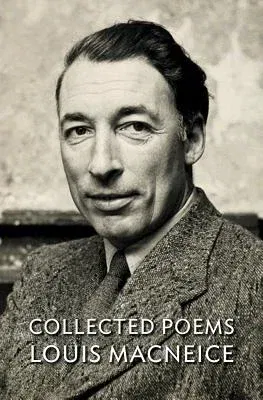Louis MacNeice
(Author)Collected Poems Louis MacNeice (Revised)Paperback - Revised, 1 May 2013

Qty
1
Turbo
Ships in 2 - 3 days
In Stock
Free Delivery
Cash on Delivery
15 Days
Free Returns
Secure Checkout

Print Length
876 pages
Language
English
Publisher
Wake Forest University Press
Date Published
1 May 2013
ISBN-10
1930630638
ISBN-13
9781930630635
Description
Product Details
Author:
Book Edition:
Revised
Book Format:
Paperback
Country of Origin:
US
Date Published:
1 May 2013
Dimensions:
23.47 x
15.57 x
5.46 cm
Genre:
British
ISBN-10:
1930630638
ISBN-13:
9781930630635
Language:
English
Pages:
876
Publisher:
Weight:
1233.77 gm